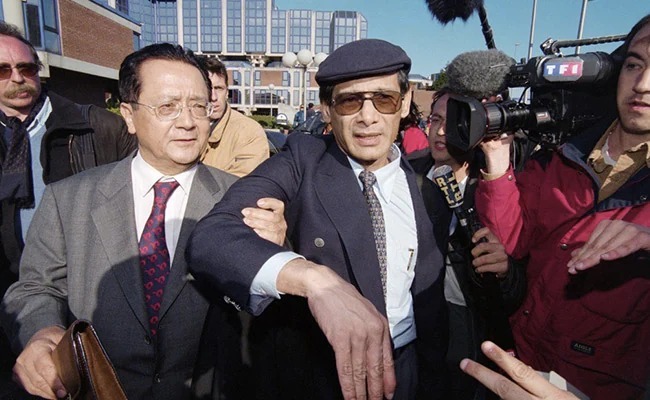| Translate This News In |
|---|
Charles Sobhraj, a French serial murderer who killed numerous young foreigners in Asia in the 1970s, was scheduled to be released from prison on Friday, according to the jail’s administration and his attorney.
A Nepali court decision stated that Sobhraj, 78, will be deported to France within 15 days and that the successful Netflix/BBC series “The Serpent” would be based on his story.
According to his attorney Gopal Shiwakoti Chintan, the initial plan was for him to be escorted to the immigration office in Nepal after being freed.
It will be decided what should happen next once he has been taken to immigration. He has a cardiac condition and wants to be treated at Gangalal Hospital, the attorney added.
But after he arrives at the immigration office, it will be decided what will actually occur.
After serving more than three-quarters of his sentence for the 1970s murder of two Americans in Nepal, the top court approved Sobhraj’s release on Wednesday for medical reasons. Sobhraj had heart surgery in 2017.
However, on Thursday, legal and administrative obstacles prevented his release from a Kathmandu jail.
In accordance with Chintan, Sobhraj stated that he “wouldn’t mind staying one more night in the prison.”
According to AFP, a representative for the French foreign ministry said that its embassy in Nepal was keeping an eye on the situation.
“Since Mr. Sobhraj is a French national, France would have to grant the request for deportation if it were made known to them.”
Swimsuit killer
Sobhraj, an international criminal who was born in Saigon to an Indian father and a Vietnamese mother who subsequently wed a Frenchman, started off in Saigon before ending up in Thailand in 1975.
He pretended to be a diamond trader and made friends with his victims, many of whom were Western hikers travelling the hippie route in the 1970s, before drugging, robbing, and killing them.
A young American woman’s body was discovered on a beach in a bikini in 1975, and the suave and sophisticated man was accused of her murder.
He later became known as the “bikini killer” and was suspected of more than 20 homicides.
He was imprisoned in India for 21 years after being apprehended there in 1976, with the exception of 1986, when he managed to break out and was apprehended once again in the Goa coastline state.
Sobhraj was released in 1997 and stayed in Paris, where he gave media paid interviews before returning to Nepal in 2003.
He was quickly apprehended in a casino after being recognised there by writer Joseph Nathan, one of the founders of the Himalayan Times daily.
“He appeared innocent… I only recognised him by pure luck “On Thursday, Nathan spoke to AFP. “I feel like that was karma,”
The next year, a Nepali court sentenced him to life in prison for the 1975 murder of US tourist Connie Jo Bronzich. He was also judged responsible for the murder of Bronzich’s Canadian partner ten years later.
When Sobhraj was imprisoned, he said he was not responsible for either murder and said he had never travelled to Nepal before the trip that led to his arrest.
In 2007, he told AFP during an interview at Kathmandu’s Central Jail, “I honestly didn’t do it, and I think I will be out.”
Thai police woman Sompol Suthimai had lobbied for Sobhraj to be extradited to Thailand and tried for the crimes he committed there. Her efforts with Interpol had been crucial in achieving his capture in 1976.
However, he told AFP on Thursday that he did not protest to the release because both he and the criminal he had formerly sought out were now too old.
Given how long it has been, Suthimai, 90, stated, “I don’t have any thoughts toward him.” “I believe he already paid a price for his conduct,”


















